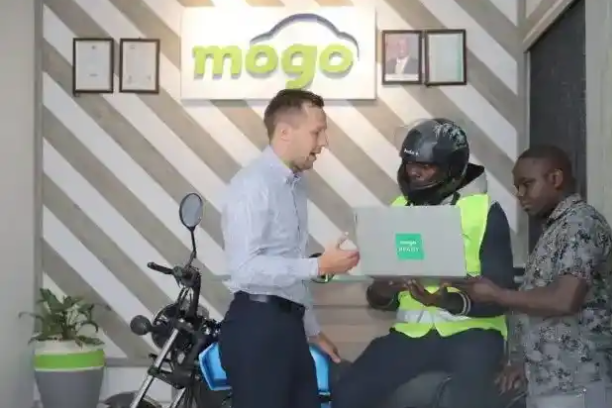Behind the polished veneer of digital lending lies a dark truth that Kenyan borrowers are learning the hard way.
Mogo Auto Limited, masquerading as a modern financial solution, has emerged as one of the most ruthless predators in Kenya’s lending landscape, leaving a trail of repossessed vehicles and broken dreams in its wake.
The Latvian-owned company, operating under the umbrella of Eleving Group, has perfected the art of financial manipulation with surgical precision.
What begins as an attractive offer – quick car loans with minimal paperwork – quickly transforms into a nightmare of hidden fees, impossible interest rates, and collection tactics that would make medieval moneylenders blush.
Caroline Nderitu’s harrowing experience reads like a psychological thriller.
On a Friday evening, she received a cold WhatsApp message demanding payment within 24 hours.
No phone call, no restructuring offer – just a digital ultimatum delivered with corporate callousness. What followed was a calculated campaign of confusion that would break lesser spirits.
Within days, civilian men ambushed her vehicle without showing proper repossession orders, using fear and intimidation as their primary tools.
The timelines kept shifting like sand – first 24 hours, then five days for full payment, followed by contradictory calls promising 14 days, then messages extending it to 30 days.
By the time the final email arrived, coldly announcing her car had been sold without auction or proper valuation, Caroline had been put through what she aptly described as “psychological whiplash.”
This isn’t isolated cruelty – it’s systematic exploitation disguised as business practice. The Competition Authority of Kenya didn’t fine Mogo KSh 10.9 million for paperwork errors.
They penalized the company for deliberately misleading customers and secretly altering loan agreements, forcing borrowers to pay more than originally agreed.
The company’s predatory appetite extends beyond desperate car buyers. Boda boda riders and small business owners – already marginalized by formal banking – find themselves in Mogo’s crosshairs.
The company deliberately targets the vulnerable, promising salvation while delivering financial damnation.
Even more telling is how Mogo treats its own staff. Reports from 2025 revealed severe salary cuts and harsh working conditions, proving that exploitation isn’t just external business strategy – it’s embedded in the company’s DNA.
For years, Mogo operated without proper Central Bank of Kenya licensing, thumbing its nose at regulatory oversight.
When they finally received their digital credit provider license in 2024, it served more as corporate cosmetics than genuine reform. The leopard hadn’t changed its spots – it had simply acquired legal camouflage.
The mathematics of Mogo’s business model are brutally simple: lure desperate borrowers with false hope, trap them with impossible terms, then strip them of their assets when they inevitably stumble.
Missing just one or two payments often triggers repossession, even when borrowers have cleared most of their debt.
Social media platforms overflow with cautionary tales from Mogo victims, each story a variation on the same theme – financial ruin disguised as opportunity. These aren’t isolated complaints from difficult customers; they represent a pattern of systematic abuse that regulators seem powerless to stop.
The tragedy lies not just in individual suffering but in the broader message Mogo sends about Kenya’s financial sector.
In a country where millions remain excluded from traditional banking, companies like Mogo position themselves as bridges to financial inclusion. Instead, they’ve become wolves in sheep’s clothing, preying on the very desperation they claim to address.
Fines and licenses have proven toothless against Mogo’s predatory practices.
The company continues operating with impunity, hiding behind foreign ownership and corporate structures while Kenyan borrowers pay the price in repossessed assets and destroyed credit.
For Kenyans considering quick loans and easy financing, Caroline Nderitu’s warning should echo in their minds: “They took my wheels, but they did not clip my wings.” Not everyone emerges from Mogo’s web with their spirit intact.
The question isn’t whether Mogo will continue its predatory practices – it’s whether Kenyan regulators will find the courage to protect citizens from these financial vultures masquerading as legitimate lenders.
Until then, borrowers beware: behind every glossy advertisement promising financial freedom lurks a shylock in an expensive suit, ready to collect more than money – they want your dignity, your peace of mind, and ultimately, your future.
There's no story that cannot be told. We cover the stories that others don't want to be told, we bring you all the news you need. If you have tips, exposes or any story you need to be told bluntly and all queries write to us [email protected] also find us on Telegram

